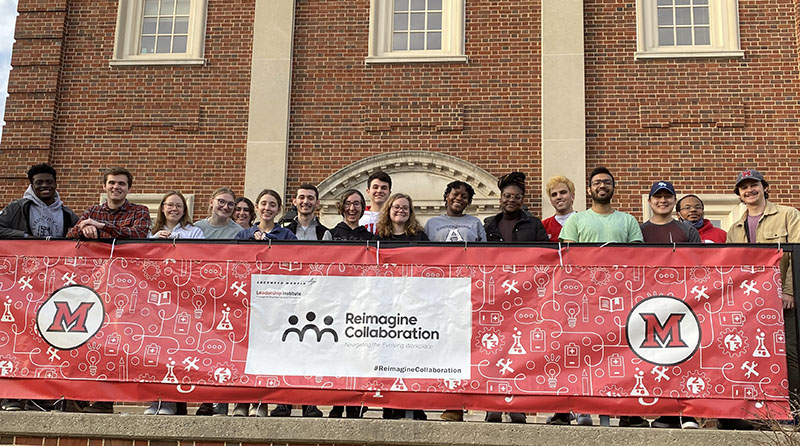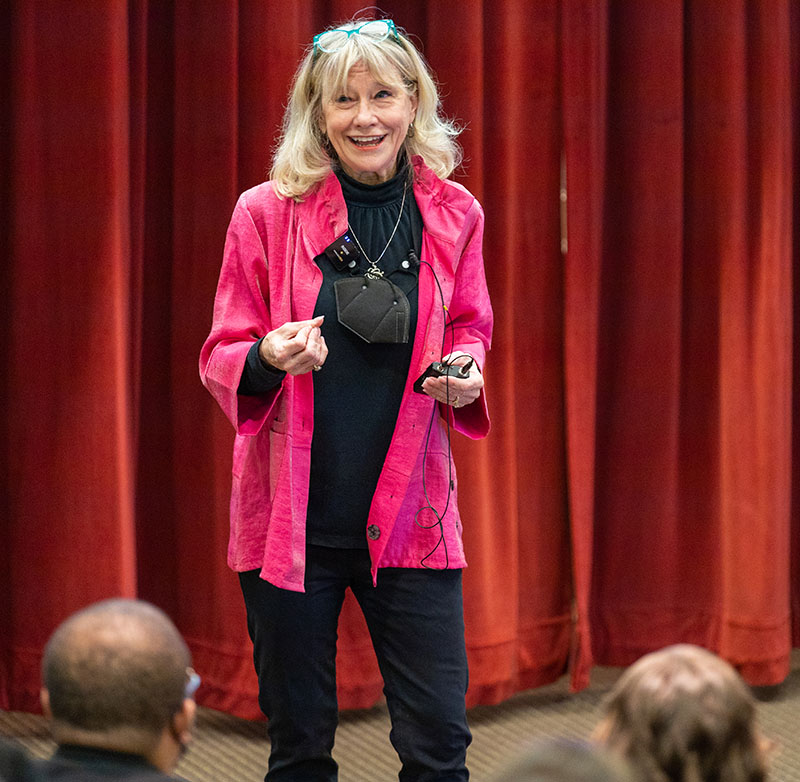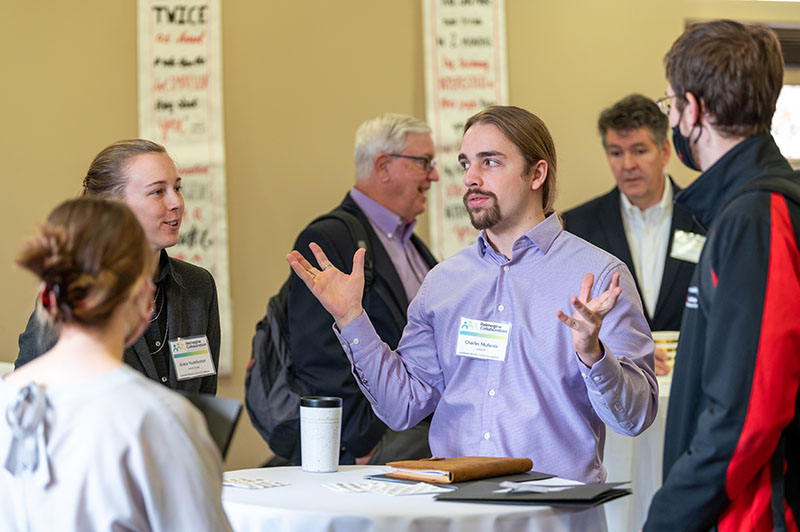The Lockheed Martin Institute celebrates 10 years in developing future leaders


Members of the Martin Lockheed Institute Cohort X: Michael Amoah, Charlie Clark, Catherine Avart, Hannah Duncan, Asia Flores, Elsa Jacob, Michael Siino, Audrey Rabick, Brian Dlugos, Elise Belanger, Morghan Jones, Zaina Sounmahoro, Sam Kuhbander, Manas Shringare, Brandon Mammano, Raymond Pugh, and Will Landman.
By Carole Johnson, university communications and marketing
Just over ten years ago Louise Morman and business professionals in the engineering and computing industries discussed creating something unique that would address a leadership void.

Some of the members of the event planning team: Charlie Clark, Hannah Duncan, Rachel Duke, Catherine Avart, and Audrey Rabick.
Their creation became the Lockheed Martin Leadership Institute, a one-of-a-kind, training platform focused on developing effective leadership among undergraduate students. The Institute cultivates leaders who will flourish in their professions and lives by learning how to think strategically, work collaboratively, communicate effectively, and innovate creatively. Its bold approach incorporates in-depth interpersonal and immersive experiences.
The Institute is housed within Miami University’s College of Engineering and Computing and is graduating its ninth cohort of students this May. They join a host of alumni now successful in industries and organizations in the United States and throughout the world.
Each year, a cohort of 15-20 second-year students are selected for a three-year intensive development program.They embark on a three-year rigorous curriculum to develop personal, people, and strategic leadership so they have the self-awareness, ability to embrace change and people skills to be effective in the future of work.These students continue to benefit from the consistently evolving curriculum developed by Morman. She regularly updates it as a result of consulting with industry professionals and executive coaches.

Louise Morman is looking toward the next ten years with new programing.
Learning about RISC: resiliency, inner strength, strategic thinking, collaborative spirit
“Technical skills alone won’t be enough for career success in the digital age,” wrote Morman in an article for Computer magazine. “It’s much more than teaching people to code. Instead, success will hinge on critical soft skills and the RISC—resiliency, inner strength, strategic thinking, and a collaborative spirit—digital mindset abilities.”
This year’s cohort recently planned and hosted the Reimagine Collaboration Conference and 10-Year Reunion event. More than 100 people participated in person and another 170 registered for sessions virtually to share ideas and best practices on communication among business teams.
Keynote speakers included Bryce Williams, senior director of workforce collaboration at Eli Lilly and Company, and Amy Leschke-Kahle, vice president of performance acceleration at The Marcus Buckingham Company. A 15-member alumni panel provided first-hand insight on various topics, from working on teams to starting a company.
Thinking ahead to the future, Morman and the Leadership team are launching new programs.
The institute piloted a new program, Tech in the Real World, an inside perspective of the tech industry. This year, students met weekly with Tony Sumrall, a Silicon Valley entrepreneur, to discuss what technology-focused roles in the industry really look like.

Alumnus Charles Mullenix connects with other alumni members of the Leadership Institute during the tenth anniversary event.
Abby Ray, a student in the program, said, “The best part of this program was learning about business structure and team operations from someone with experience. It gave me a greater perspective on what to expect after I graduate.”
Morman also created Seeing Differently: Advanced Transformational Leadership, a program that promotes a new way of looking at experiencing diversity, equity, and inclusion.
“Through the Seeing Differently program, we provide a safe place at the Institute where students can mix with and learn from people who come from varied backgrounds, “ Morman said
The program looks at trouble areas like bias and saboteurs to recapture a sense of purpose, develop resilience and generate an intentional action plan focused on each individual’s goals.
As Morman reflects on the past ten years, she is grateful for the vision and the support from Lockheed Martin and friends of the Institute.
“I give Lockheed Martin enormous credit for taking the risk in developing the Leadership Institute. They wanted to impact change in the industry, and they saw the vision of what could happen by investing in and working with our young engineers and computer scientists on leadership skills,” she said.

